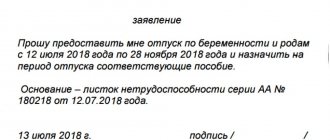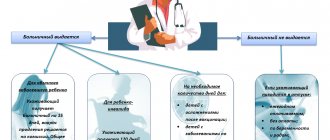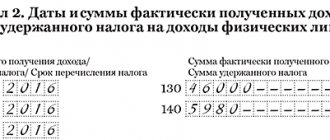Pilot project participants for 2021
The list of subjects of the Russian Federation participating in the FSS pilot project is indicated in Government Decree No. 294 of 04/11/2011.
As of 01/01/2018, 33 subjects of the Russian Federation have successfully switched to the mechanism of “direct” payments from the FSS.
Previously, the Government planned to add 13 more entities to the pilot project from July 1, 2021, and another 13 from July 1, 2021, in order to ultimately complete the project on December 31, 2019.
However, on December 11, 2017, the Government of the Russian Federation issued Decree No. 1514 (on amending Decree No. 294 of April 21, 2011), which came into force on January 1, 2021. In accordance with the provisions of this official document, participation in the project of the last 26 subjects was canceled, and the pilot project itself was extended until December 31, 2020.
Consequently, in these regions the previous “offset” system of assigning and paying benefits by employers to their employees will remain, in which accrued insurance premiums are reduced by the amount of benefits.
The reason why the expansion of the circle of participants in the pilot project was suspended is not indicated in Resolution No. 1514 of December 11, 2017. The issue regarding the further administration of benefit payments to insured persons has not been fully resolved at this stage.
Expansion of the pilot project is suspended
The mentioned Resolution No. 1514 actually suspended the introduction of the FSS pilot project “Direct Payments” in 2018 in those regions where the credit scheme is still in effect. Perhaps this is a temporary measure, although there is no clause in this regard in the government document.
Let us note that by 2021, the Cabinet of Ministers planned to connect absolutely all regions of Russia to the scheme for paying benefits directly through the Social Insurance Fund, and not through the employer. However, as you can see, plans unexpectedly changed for many.
Based on Resolution No. 1514, the pilot project for direct payments from the Social Insurance Fund has been extended to 2021 inclusive. That is, those regions that were included in the pilot project at the beginning of 2021 can make direct payments of benefits from the Social Insurance Fund until 2020 inclusive.
New forms of registers of information on benefits in the Social Insurance Fund
For all insurers from the 33 constituent entities of the Russian Federation participating in the pilot project, Order of the Social Insurance Fund No. 579 of November 24, 2017 approved new forms of registers of information necessary for the assignment and payment of benefits, and also established the procedure for filling out these registers.
The order provides for the use of new registers by employers starting from January 29, 2021. At the same time, Order of the Federal Social Insurance Fund of the Russian Federation No. 223 of June 15, 2012, which approved the previous forms of registers, is declared to have lost its force.
Let us note the main changes included in the new register forms in the FSS:
- In connection with the introduction of electronic sick leave certificates from July 1, 2021 (approved by Federal Law No. 86-FZ dated May 1, 2017) in the form of a new register for the assignment of benefits for temporary disability, maternity benefits and benefits for women who have become disabled registration in the early stages of pregnancy, column 16 appeared, in which it is necessary to indicate the form of the certificate of incapacity for work (“on paper - a certificate of incapacity for work” or “in the form of an electronic document - an electronic certificate of incapacity for work”).
- In the same register form, in column 43, it will be necessary to indicate the method by which the benefit is paid: “to a bank account”, “by postal transfer”, “through another organization”.
- If the card to which the benefit is transferred is linked to the national payment system "Mir", then in column 47 you must indicate the number of this card, and columns 44-46 are not required.
- The column “Information on part-time work” previously indicated the rate and salary; now you only need to indicate the rate in column 41.
In the forms of registers of information on benefits for the birth of a child and for the care of a child up to 1.5 years old, similar corrections have been made regarding information about part-time work, the method of payments and the use of the Mir card.
Another 38 regions were included in the FSS pilot project
The Russian government included 38 more regions in the FSS pilot project. The corresponding resolution No. 1459 dated December 1, 2018 was published on the official Internet portal of legal information.
Let us remind you that in the regions included in the pilot project of the Social Insurance Fund, payments of sick leave, children's and other benefits are made directly from the Fund.
Employers pay insurance premiums in full without reducing them for benefits. Also in these regions there is a special procedure for reporting on insurance premiums.
From July 1, 2021, the FSS pilot project covers only 39 regions. The full list of pilot entities is established by government decree No. 294 dated April 21, 2011. At the same time, in other regions, the offset mechanism for employers to pay sick leave, child care and other social benefits to employees is maintained.
It is now established that from January 1, 2021, the FSS pilot project will include 11 more subjects of the Russian Federation: Ingushetia, Mari El, Khakassia, Chechnya, Chuvashia, Kamchatka Territory, Vladimir, Pskov and Smolensk regions, as well as the Nenets and Chukotka Autonomous Okrugs.
From July 1, 2021, 9 more subjects of the Russian Federation will be added to the pilot project: Trans-Baikal Territory, Arkhangelsk, Voronezh, Ivanovo, Murmansk, Penza, Ryazan, Sakhalin and Tula regions.
From January 1, 2021, the pilot project will expand to the following constituent entities of the Russian Federation: Komi, Yakutia, Udmurtia, Kirov, Kemerovo, Orenburg, Saratov, Tver regions, as well as the Yamalo-Nenets Autonomous Okrug.
From July 1, 2021, the FSS pilot project will additionally include 9 constituent entities of the Russian Federation: Bashkiria, Dagestan, Krasnoyarsk and Stavropol territories, Volgograd, Irkutsk, Leningrad, Tyumen, Yaroslavl regions.
Thus, from 2021 to 2020, another 38 constituent entities of the Russian Federation will join the 39 regions already participating in the implementation of the direct payment mechanism under the pilot project.
Accordingly, by 2021, the offset mechanism for paying insurance contributions to the Social Insurance Fund will not be used in 77 constituent entities of the Russian Federation.
In 1C:Enterprise, these changes will be supported with the release of next versions. You can find out about the deadlines in “Monitoring changes in legislation.”
The 1C: Salaries and Personnel Management 8 program implements all the necessary documents for the pilot regions.
For more information about setting up the “1C: Salary and HR Management 8” program, if you are participating in the FSS pilot project, read the article “1C: Salary and HR Management 8”: how to connect to the FSS pilot project for paying benefits directly.”
1C experts also spoke about how participants in the FSS pilot project can generate documents for submission to the Fund in “1C: Salaries and Personnel Management 8” (ed. 3) at a lecture from “Payment for disability and other benefits at the expense of the FSS in “1C:” Salaries and personnel management 8” (ed. 3), which took place in 1C: Lecture Hall on July 26, 2018. More details can be found in 1C:ITS on the 1C:Lectorium page.
Pros and cons of the FSS pilot project
For the most part, this project has only been beneficial for employers and their employees:
- The process of filling out 4-FSS reports has been simplified for enterprises, and there is now no need to pay benefits to employees;
- for employees, a shorter period for payment of benefits is now guaranteed (the framework is clearly regulated - within 10 days after the employer provides the register), benefits will be paid in any case, regardless of the financial situation of the employer, plus the Social Insurance Fund strictly controls the correctness of calculation of benefits.
And also, in general, the possibility of fraud when using fake sick leave forms has been significantly reduced.
Negative aspects most likely affected the FSS branches, since there was a significant increase in the FSS budget expenditures for compulsory social insurance, in addition, issues regarding the transfer of information about the policyholder from the fund of one constituent entity of the Russian Federation, in which the pilot project is operating, to the fund of another subject, have not been fully resolved, in which the “offset” system is recognized (in the event that the policyholder changes his place of registration) - various kinds of difficulties often arise in this matter.
Anna Lutsenko, accountant of the accounting department.
Materials from the newspaper “Progressive Accountant”
FSS pilot project: which regions are making direct payments in 2021
The goal of the pilot project “Direct Payments” is to improve the situation of insured citizens
07/09/2018Russian Tax Portal
Author: Tatyana Sufiyanova (tax and duties consultant)
As the Social Insurance Fund tells us, since 2011, on the territory of the Russian Federation, the Social Insurance Fund began implementing a pilot project aimed at making insurance payments for compulsory social insurance to insured persons directly by the territorial bodies of the Fund.
That is, workers will receive benefits not at their job, but at their place of residence in the territorial bodies of the Social Insurance Fund.
The goal of the “Direct Payments” project is to improve the situation of insured citizens and policyholders in the implementation of activities related to the assignment and receipt of benefits within the framework of compulsory social insurance.
Which regions are taking part in the project? In total, from July 1, 2021, 39 regions of our country are taking part.
1) Since July 1, 2011, the Karachay-Cherkess Republic and the Nizhny Novgorod region have been participating in the pilot project,
2) From July 1, 2012, the project included the Astrakhan, Kurgan, Novgorod, Novosibirsk, Tambov regions and Khabarovsk Territory,
3) From January 1, 2015 – Republic of Crimea, Sevastopol,
4) From July 1, 2015 – the Republic of Tatarstan, Belgorod, Rostov and Samara regions,
5) From July 1, 2021 – the Republic of Mordovia, Bryansk, Kaliningrad, Kaluga, Lipetsk and Ulyanovsk regions,
6) From July 1, 2021 - the Republic of Adygea, the Altai Republic, the Republic of Buryatia, the Republic of Kalmykia, Altai Territory, Primorsky Territory, Amur Region, Vologda Region, Omsk Region, Oryol Region, Magadan Region, Tomsk Region, Jewish Autonomous Region,
7) From July 1, 2021 - the Kabardino-Balkarian Republic, the Republic of Karelia, North Ossetia - Alania, Tyva, Kostroma and Kursk regions.
In order for a person to receive benefits from the Social Insurance Fund, he needs to write an application for payment of benefits to him. And this application indicates the details of his bank account (account details). Please note that indicating a bank card number is not enough; you must indicate the name of the bank, its BIC, and your account number.
What form should I use to write an application?
The application form was approved by order of the FSS of the Russian Federation dated November 24, 2017 No. 578. You can
Who should I submit this application to?
The application must be submitted to your employer. After receiving your application, the employer (policyholder), no later than 5 calendar days from the date of submission, sends information to the territorial body of the Fund for the appointment and payment of the appropriate type of benefit (in the form of an electronic register).
To the policyholder who has not submitted documents or information in full to the territorial body of the Fund, the Fund, within 5 working days from the date of receipt, sends a notice of the provision of the missing information. The missing documents must be provided within 5 working days from the date of receipt of the notification.
Benefit payment terms:
1) Payment of temporary disability benefits, maternity benefits, one-time benefits for women registered in medical institutions in the early stages of pregnancy, one-time benefits for the birth of a child - within 10 calendar days from the date of receipt of the application and documents or information that necessary for the assignment and payment of the appropriate type of benefit.
2) The initial payment of monthly child care benefits is carried out in the manner and terms specified above. Subsequent payment of the monthly child care benefit to the insured person is carried out by the territorial body of the Fund from the 1st to the 15th day of the month following the month for which such benefit is paid.
Downloads
- Application form for receiving benefits in the FSS.XLS (111Kb)
Post:







